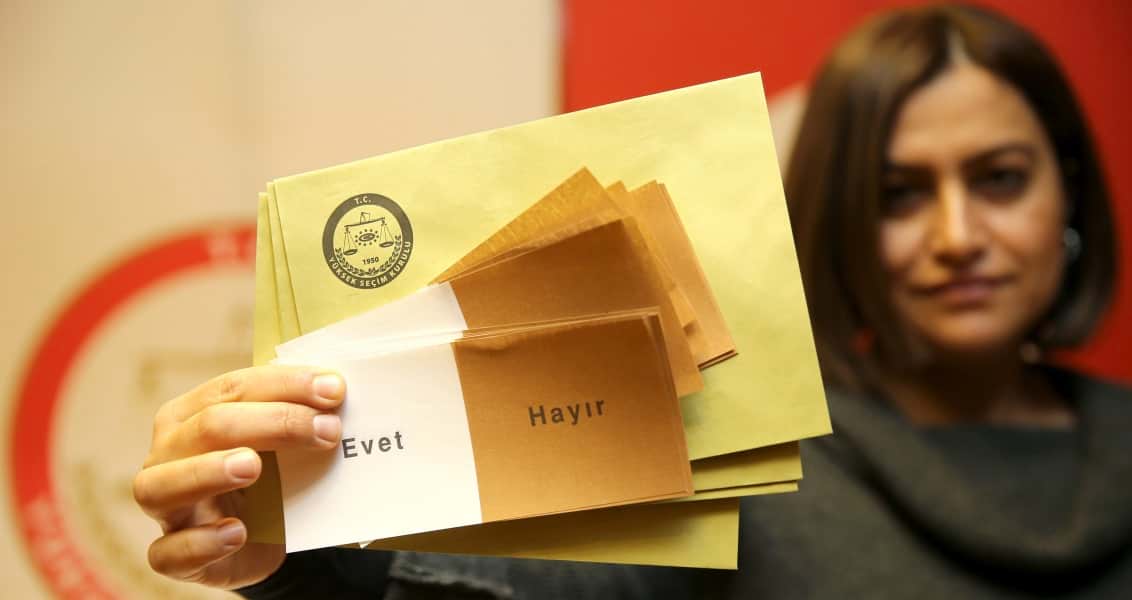
Who Does the 'War of Independence' Narrative Benefit?
The argument from the ‘no' camp that claims the opposition to the referendum is the same as fighting the War of Independence will certainly backfire
Share
A head of the 2017 constitutional referendum, both the "yes" and "no" campaigns rest on the premise that Turkey is going through an extraordinary period. As such, both sides of the argument maintain that the Turkish people will make the most crucial decision in the Republic's history on April 16.
To be clear, the Turkish people are all too familiar with the experience of being told by politicians that they are about to make a decision of extraordinary significance. Still, voters can hardly remember another instance when their opinion mattered so much. Typically, referendum campaigns are defined by fierce competition between the two sides over the undecided. As a result, the 'yes' and 'no' campaigns alike invoked religious arguments in the hope of winning over undecided voters. The "no" campaign, for instance, already claimed that the "yes" vote was a form of bay'ah, or an oath of allegiance. They also argue that one-man rule was un-Islamic and claimed that the presidential system was a form of caliphate.
Although some observers criticized the use of religious arguments in the campaign, I personally believe that it could be considered a sign of normalization. Still, religious arguments are bound to have a limited influence on the race because the Republican People's Party (CHP), the leading opponent of constitutional reform, knows that they cannot compete with conservatives in this area. To make matters worse, efforts to impress undecideds among the Justice and Development Party (AK Party) ranks with religious references could upset the CHP's ultra-secularist base.
In recent weeks, the CHP leadership's main goal has been to associate Republican values with the "no" vote. As such, they want to portray the proposed transition to a presidential system as a form of regime change that will undermine democracy and the Republic itself. In an effort to support their argument, CHP politicians have adopted a narrative that pits "the guardianship of the man in the palace" against national sovereignty, republicanism, Mustafa Kemal Atatürk and the War of Independence. In doing so, the main opposition party wants to counter the case made by the AK Party and the Nationalist Movement Party (MHP) - that the "yes" vote will empower the people at the expense of the establishment.
In an effort to color the "no"' campaign with patriotism, CHP Chairman Kemal Kılıçdaroğlu will hold his first campaign event in Amasya - where Atatürk and others held a meeting in 1919 to produce the first written document that put the War of Independence in motion. The main opposition leader explains his decision as follows: "The current process is the second stage of the War of Independence. I have a responsibility [as main opposition leader] but 80 million [people] all have a responsibility as individuals. We will help ourselves. Do we want a democracy or a one-man regime? This is what we are voting on."
In Turkish politics, the War of Independence has always been the ultimate point of reference in key moments - the nation's triumph over the imperialists. But Mr. Kılıçdaroğlu's decision to target the AK Party and MHP with such references is not only problematic but also possibly counter-productive. There are many questions in people's minds that the "yes" campaign can easily answer - especially with the memories of July 15 still fresh: Against whom are we fighting a war of independence today? Who are our external enemies or the imperialists? Or are we fighting against terrorist groups such as PKK, Daesh and the Gülenist Terror Group (FETÖ)?
If the CHP leadership wants to answer the above questions by claiming to fight against "the man in the palace" - which they appear to want to do - their argument will almost certainly backfire. Although they do not mention Recep Tayyip Erdoğan by name, the president still remains the cornerstone of the "no" campaign. Let's make one thing clear though: It would be futile to try and identify a conservative politician, who has won the popular vote 11 times since 2002, as a figure against whom the nation shall wage a war of independence. The War of Independence narrative, which brings to mind foreign enemies, the country's survival, resistance and leadership, will not help the "no" campaign.
[Daily Sabah, March 04, 2017]
Tags »
Related Articles






